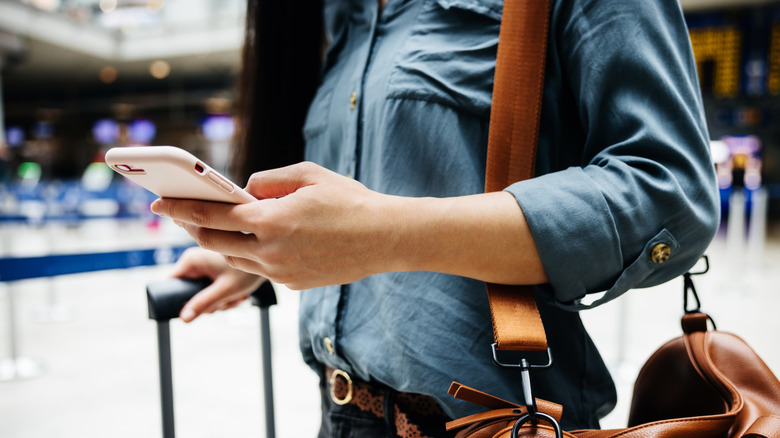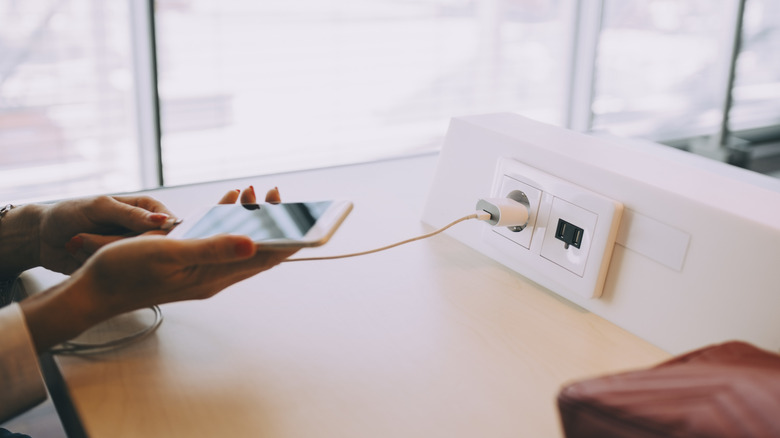TSA Has A Big Warning Against Certain Smartphone Habits In Airports To Keep Your Information Safe
Just when you thought the laundry list of things to worry about at an airport was finally over — including those annoyingly inconsistent airport security rules — TSA is saying, "Guess again!" The agency posted to its Facebook page warning that there are a couple of things you should be wary of when using your cellular device in the airport. The first is the charging stations at airports and USB ports, and the second is the public Wi-Fi.
TSA says that hackers can install malware at USB ports, called "juice jacking," and you should be purchasing a TSA-compliant power brick to use at airports instead. It also comments that you shouldn't use public Wi-Fi to make online purchases or enter any sensitive information. This might seem contradictory, being that some airports allow the use of a Digital ID to get through security, and some people might need to access the public Wi-Fi for updates on their flight; however, the agency would be remiss to not inform the public of any risks that can pose a threat.
Ways to keep your information and phone safe at airports
Not only is your cell phone the most frequently stolen item at airports, but now if you have it in your possession, you can be the one posing a threat to yourself. With the TSA's latest warning, travelers are being urged to take extra precautions to protect their devices from digital threats. The good news? There are simple ways to prevent your phone from being hacked and to safeguard your personal information, such as avoiding public USB charging stations altogether. As for public Wi-Fi, using a personal hotspot for your devices is a much safer alternative. Unlike unsecured airport networks, your hotspot creates a private connection, reducing the risk of data interception and keeping your information protected while you stay connected.
It's also important to keep your device's software up to date and enable security features like two-factor authentication. Avoid clicking on suspicious links or downloading unknown apps while traveling, and consider using a reputable VPN service for an extra layer of encryption. Taking these proactive steps can greatly reduce your risk of falling victim to cyberattacks while on the go. Want more travel tips for airports? Check out our airport hacks that can help you zip through TSA.

